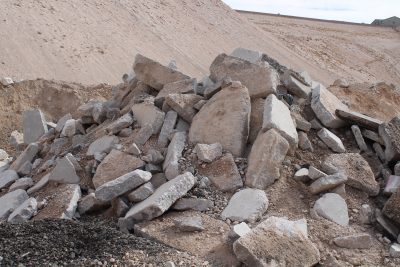
Features
Aggregates
Pits & Quarries
Bill 31 passed in Alberta legislature
New bill supports Alberta aggregates and brings industry back to "normal" says ASGA president
July 28, 2020 By Jay Koblun

Bill 31 has received Royal Assent in Alberta legislature and president of the Alberta Sand & Gravel Association Joe Hustler said the news is a great relief for the industry. The bill was created after a recent court ruling decided new sand and gravel applications to Alberta Environment & Parks could be evaluated as a quarry—quarries producing more than 45,000 tonnes per year are required to complete an Environmental Impact Assessment (EIA).

ASGA President Joe Hustler. Photo courtesy of ASGA
The ruling was made on May 6 in relation to the Big Molly frac sand operation in Lac Ste. Anne County and stated that there is a strong possibility that gravel pits would have to be considered quarries, instead of having their own classification. Due to the ruling roughly 500 applications were put on hold.
“This is a great relief for the Alberta sand and gravel industry,” he said. “The court ruling made on May 6 put about 500 applications that were before the crown on hold. What that ruling did is put everything on pause, so it’s been almost three months of delay on approvals which was quite concerning.”
Bill 31 does three things:
- It makes clear that aggregates are explicitly part of the EPEA.
- It makes clear that a pit is a place where aggregate extraction takes place in the EPEA.
- It removes references to “silica sand” from the Public Lands Act as a redundant term.
Hustler said the government responded promptly to the bill when it was first put forward. “We need to give credit to the government, both parties, for supporting the bill and making sure that it went through. If it didn’t go through in July it would likely have had to wait until November, which would have been very bad for the industry,” he said. Hustler added the government is working on cleaning up the 500-application backlog.
“Originally the government’s intent was to have it all cleaned up in July, so it was in everyone’s best interest, the government and our industry, to deal with the issue.”
According to the Senate of Canada, Royal Assent is the approval by the Sovereign of a bill that has passed both houses of Parliament in identical form. It is the process by which a bill becomes an act of Parliament and part of the law of Canada. If Bill 31 did not become part of Canadian law the aggregate industry in Alberta would have slowed down.
“Many individuals had already anticipated getting approvals for pits prior to May 6 and then were delayed with the court ruling,” said Hustler. “If the government hadn’t taken care of it, it would have changed everything for the industry because we would have had to apply as quarries and do an Environmental Impact Assessment and that’s something our industry and government wasn’t prepared to do. It was completely out of the norm,” adding that the impact on small business would have been huge.
“Having to do an Environment Impact Assessment would have been particularly hard on the small operators, so this puts us back to the normal we were used to and allows operators to continue to look at expansion opportunities.”
For more information on Bill 31 visit, asga.com.
Print this page